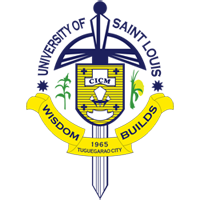
Four studies of the School of Engineering, Architecture and Information Technology Education (SEAITE) and one multi-institutional research were published in different international peer-reviewed publications during the short term of last school year and this first semester of the school year 2019-2020.
Mr. Ertie C. Abana, head of the Center for Engineering Research and Technology Innovation (CERTI), published two of the four SEAITE studies.
The research titled “Usability of “Traysi”: A Web Application for Tricycle Commuters” aimed to measure the usability of a web application for tricycle commuters.
The said web application was developed using Hypertext Markup Language (HTML), Cascading Style Sheet (CSS) and Javascript (JS) with the aid of Google Artificial Programming Interfaces (APIs).
The study titled “A Decision Tree Approach for Predicting Student Grades in Research Project using WEKA” used classification, a data mining process, which helps research instructors and advisers to evaluate engineering students’ data in identifying who need academic counseling in their research subjects.
The study employed Waikato Environment for Knowledge Analysis (WEKA), a data mining tool that is used in generating the classification model. As stressed in the abstract of the study, the extracted classification rules from the decision tree were used in the algorithm of the Research Project Grade Predictor application which was developed using Visual C#.
Both studies were published in the International Journal of Advanced Computer Science and Applications (IJACSA) in its July 2019 issue.
The IJACSA is one of the two journals produced by the Science and Information (SAI) organization which features information that covers diverse domains in technology.
Student-faculty researches
The paper titled “Road Flood Warning System with Information Dissemination via Social Media” was published in the International Journal of Electrical and Computer Engineering (IJECE), December 2019 issue.
Mr. Abana, together with his co-authors: Cindy Verli Dayag, Vanessa Mae Valencia, Princess Hipolito Talosig, John Paulo Ratilla, and Gladys Galat, worked on developing a system that aims to provide timely flood alert information to the public.
The said system determines the depth of water using an ultrasonic sensor. Once data are gathered, information will be posted in social media sites such as Facebook and Twitter.
Also, an engineering study titled “Rakebot: A Robotic Rake for Mixing Paddy in Sun Drying” was published in the Indonesian Journal of Electrical Engineering and Computer Science (IJEECS).
Mr. Abana, along with the five computer engineering graduates, namely: Meljiflor Pacion, Roxanne Sordilla, Daniel Montaner, Dennis Agpaoa, and Rryma Mae Allam, authored the study.
The study explored at developing a “rakebot” which mixes grains properly during sun drying. The researchers highlighted that the rakebot ensures simultaneous reduction of the moisture content of paddy as well as emphasized that the rake design of the robot prevents fissuring of grains.
The study can be found in the June 2019 issue of the said journal.
Rakebot is a portmanteau, a made-up word coined from a combination of the words robot and rake.
Going multi-institutional
Mr. Jay M. Ventura, Dr. Arnel C. Fajardo, and Dr. Ruji P. Medina’s multi-institutional study titled “Alternative Priority-based Queuing for WBAN” was published in the International Journal of Recent Technology and Engineering (IJRTE), July 2019 issue.
The paper suggests an alternative priority-based queuing in addressing issues as regards quality of services (QoS) metrics.
Results of the study showed that through application of the proposed algorithm, there is decrease in end-to-end delay and queuing delay while reliability of QoS aware routing protocol increases.
The researches explained that the proposed algorithm can be implemented on Wireless Body Area Network (WBAN).
Mr. Ventura is USL’s program chair of Computer Engineering and Engineering Sciences. Dr. Medina is dean of the Graduate Programs of the Technological Institute of the Philippines (TIP) Quezon City while Dr. Fajardo is senior assistant vice president of Manuel L. Quezon University (MLQU) Quezon City.
All journals mentioned are Scopus indexed.


